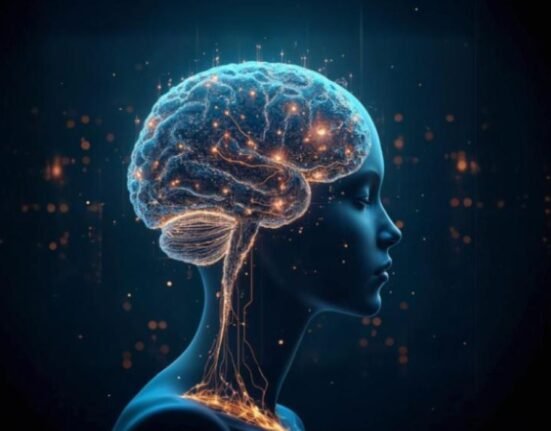Have you ever been in a position where you vividly and strongly recall something that never happened or remembered somewhat differently from how it happened? Furthermore, not only do you find yourself in this circumstance, but your friends and family also do. Then you are experiencing the Mandela effect. According to Medical News Today, “The Mandela Effect refers to widespread false memories that large numbers of people or a group of individuals believe.”
Origin of the Mandela Effect
Fiona Broome, a writer and paranormal researcher, coined the term Mandela Effect which was inspired by her false memory of Nelson Mandela dying in prison in the 1980s, even though he became president of South Africa from 1994–1999 and passed away in 2013. Later on, She created a website to find out how many people like her, thought Nelson Mandela had died in prison, and why we’d been confused.
After realising that she had a false memory of Mandela’s passing. Since 2010, thousands more people have written about remembering Mandela’s death online, according to Broome, who theorised that this could be evidence of parallel universes, but the Mandela effect is just a type of false memory.
Read More: Psychology of False Memory Syndrome
False memories are distorted recollections of an event. Certain false memories include facts that closely resemble the actual truth, However, these are entirely false. Memories can be very suggestible. This means that information from someone else, your wish to believe something else, or even fake information online can have an impact on your mind, making your memories distorted. People can believe in multiple varieties of false things.
Symptoms of Mandela’s effects:
The symptoms of experiencing the Mandela Effect or false memories can include:
- Conviction: People who experience the Mandela effect are confident in their false memory, despite of being it being proven false.
- Shared Recollections: These memories are frequently shared by a large number of people, leading to a collective false memory. This is quite fascinating as the question arises “How can everyone remember this in the same way”
- Surprise or Confusion: Upon learning the right information, many often express surprise and confusion. They struggle to make sense of the information.
- Detail description: People recall specific details inaccurately, such as names, dates, or visual elements like colours, logos, quotes
- Resistance to Correction: Despite corrections, individuals might resist accepting the accurate version of events. For example, when people mistake a quote or jingle, it doesn’t make sense to them after the correction
Causes of the Mandela Effect
Memory is a strange thing, which can be altered by even small details and opinions from others, the Mandela effects can be caused by
- False Memories: Memory is influenced by facts from others, personal beliefs, and fake stories from the internet. In a study, researchers induced false memories of committing crimes, within the participants, they could not differentiate between memories.
- Confabulation: Confabulation is a process, where false memories are often created to fill gaps in the memory. It’s common in conditions like Alzheimer’s disease, where patients lack information to recall specific memories.
- Priming: Priming occurs when exposure to one stimulus influences a person’s response to a subsequent stimulus. For example, on hearing the word “grass,” a person will recall words like “tree” or “lawnmower” faster. Another case that showcases this is when asked: “What does a cow drink?” Many say milk.
- Alternate Realities or Parallel Universes: Fiona Broome’s explanation of the Mandela Effect includes this idea, although it lacks scientific support despite drawing on real physics theories.
Read More: The Psychology Behind Memory Distortion
Cases of Mandela effect
- Berenstein Bears vs. The Berenstain Bears: People are confused about “Berenstein Bears” or “Berenstain Bears.” The owner of Berenstain Bears is a popular children’s literature franchise, Mike Berenstain stated there had always been confusion regarding this. A few times the “Berenstein” spelling was found in publications and allusions to official merchandise, Additionally, the series’ cartoons used an unclear pronunciation.
- Jif vs. Jiffy logo: Jif is a brand of peanut butter in America but many people remember the brand’s label as Jiffy. Looney Tunes vs. Looney Toons logo Many people believe that the logo for the Warner Brothers’ cartoons was spelt “Looney Toons.” But in reality, it’s “Looney Tunes.” ‘I am your father.’ Another example is the famous dialogue from “Star Wars: The Empire Strikes Back” say, “Luke, I am your father.”While in reality, Darth Vader says, “I am your father.” There is no word like “Luke” in the dialogue.
- Monopoly: A common distorted memory is that the mascot, Rich Uncle Pennybags, from the Monopoly board game, wears a monocle. While in reality, he does not.
- Fruit of the Loom: Some people remember the Fruit of the Loom logo featuring a cornucopia behind the fruits, but the logo has never had a cornucopia.
There are multiple cases of the Mandela effect across entertainment, and logos, which has caused debates on internet forums, these discussions gave rise to multiple questions about alternate realities, but researchers have found the real issue, which is related to memory alterations. Memory is vulnerable to suggestion And influences from outside sources and personal prejudices. Therefore, these cognitive processes rather than encounters with parallel realities can be the cause of the Mandela Effect.
Reference +
- Shaw J (2020) Do False Memories Look Real? Evidence That People Struggle to Identify Rich False Memories of Committing Crime and Other Emotional Events. Front. Psychol. 11:650. doi: 10.3389/fpsyg.2020.00650
- Huff MJ, Bodner GE and Gretz MR (2020) Reducing False Recognition in the Deese-Roediger/McDermott Paradigm: Related Lures Reveal How Distinctive Encoding Improves Encoding and Monitoring Processes. Front. Psychol. 11:602347. doi: 10.3389/fpsyg.2020.602347
- Prasad D, Bainbridge WA. The Visual Mandela Effect as Evidence for Shared and Specific False Memories Across People. Psychol Sci. 2022 Dec;33(12):1971-1988. doi: 10.1177/09567976221108944. Epub 2022 Oct 11. PMID: 36219739.













Leave feedback about this